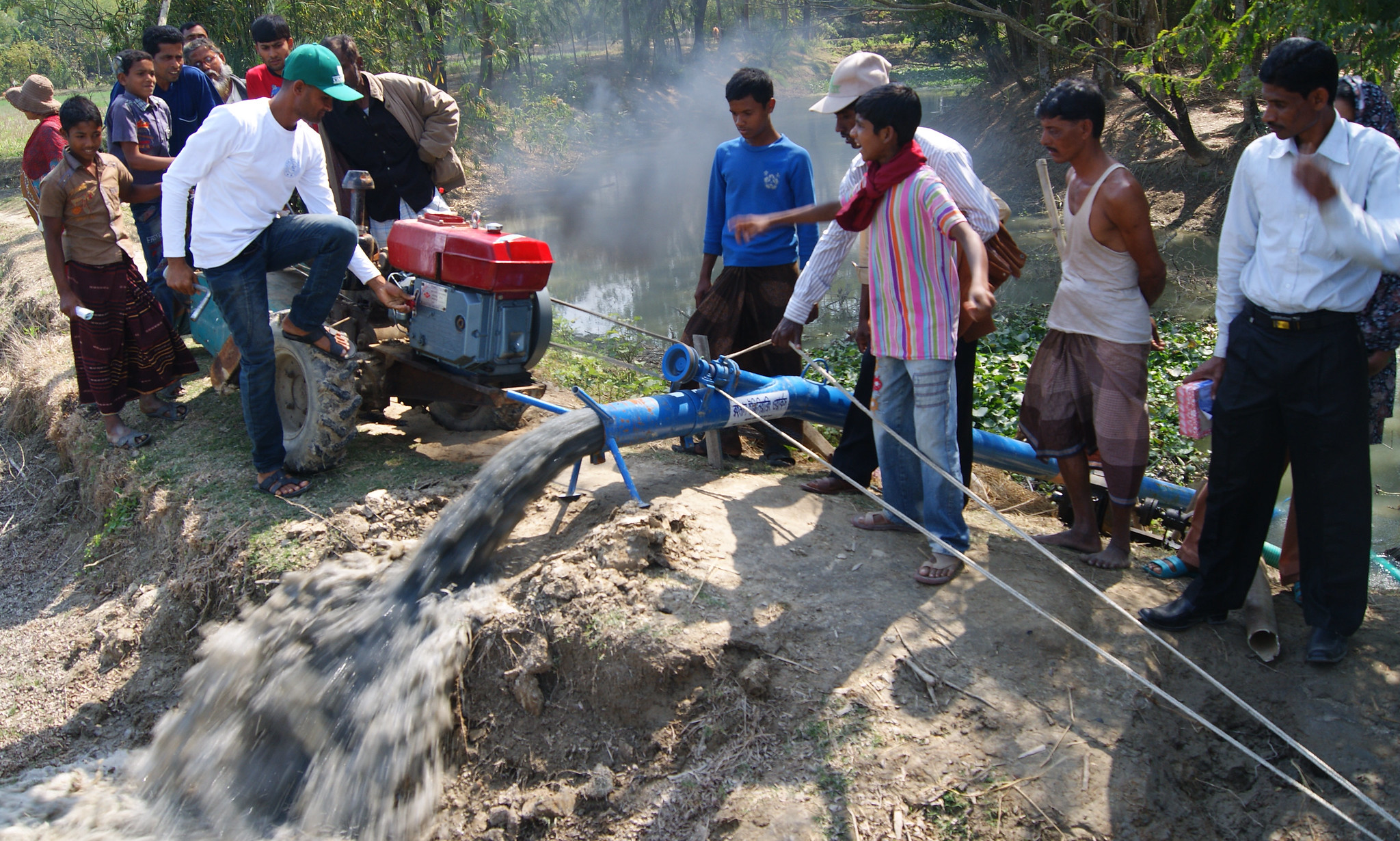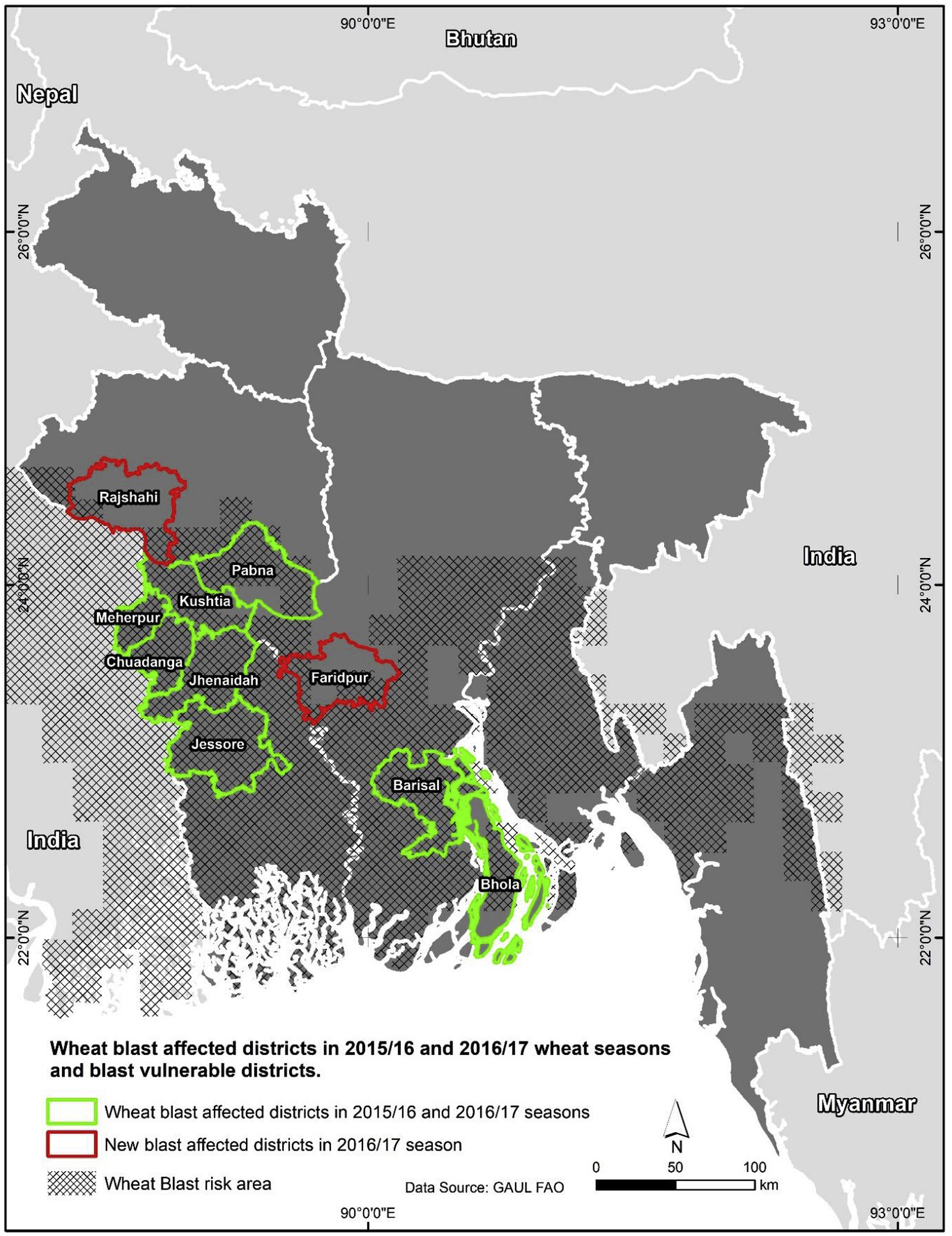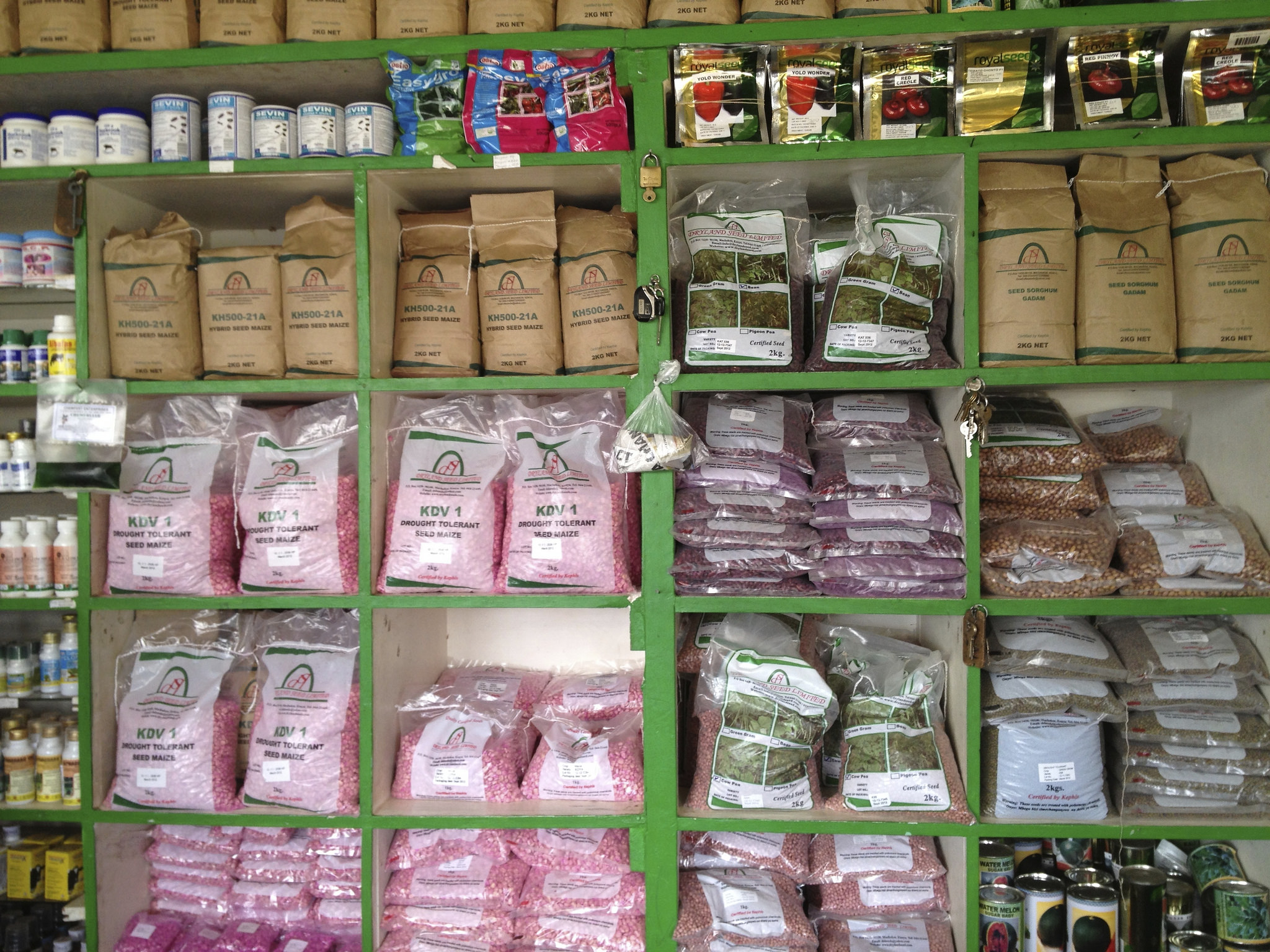Domestic rice and wheat production in Bangladesh has more than doubled in the last 30 years, despite declining per capita arable land. The fact that the country is now almost self-sufficient in staple food production is due in large part to successful and rapid adoption of modern, high-yielding crop varieties. This has been widely documented, but less attention has been paid to the contribution of small-scale irrigation systems, whose proliferation has enabled double rice cropping and a competitive market system in which farmers can purchase irrigation services from private pump owners at affordable rates.
However, excess groundwater abstraction in areas of high shallow tube-well density and increased fuel costs for pumping have called into question the sustainability of Bangladesh’s groundwater irrigation economy. Cost-saving agronomic methods are called for, alongside aligned policies, markets, and farmers’ incentives.
A recent study by researchers at the International Maize and Wheat Improvement Center (CIMMYT) examines the different institutions and water-pricing methods for irrigation services that have emerged in Bangladesh, each of which varies in their incentive structure for water conservation, and the level of economic risk involved for farmers and service providers.
Using primary data collected from 139 irrigation service providers and 556 client-farmers, the authors assessed the structure of irrigation service types as well as the associated market and institutional dimensions. They found that competition between pump owners, social capital, and social relationship between of pump owners and client farmers, significantly influence the structure of irrigation services and irrigation water pricing methods. Greater competition between pump owners, for instance, increases the likelihood of pay-per-hour services while reducing that of crop sharing arrangements.
Based on these and other findings, authors made policy recommendations for enhancing irrigation services and sustainability in Bangladesh. As Bangladesh is already highly successful in terms of the conventional irrigation system, the authors urge taking it to the next level for sustainability and efficiency.
Currently Bangladesh’s irrigation system is based on centrifugal pumps and diesel engines. The authors suggest scaling out the energy efficient axial flow pump, and the alternate wetting and drying system for water conservation and irrigation efficiency. They also recommend further investment in rural electrification to facilitate the use of electric motors, which can reduce air pollution by curbing dependency on diesel engines.
Read the full article:
“Understanding clients, providers and the institutional dimensions of irrigation services in developing countries: A study of water markets in Bangladesh” in Agricultural Water Management, Volume 222, 1 August 2019, pages 242-253.
This study was made possible through the support provided by the United States Agency for International Development (USAID) and the Bill & Melinda Gates Foundation to the Cereal Systems Initiative for South Asia (CSISA). Additional support was provided by the CGIAR Research Programs on Maize (MAIZE) and Wheat (WHEAT).

Read more recent publications by CIMMYT researchers:
- A spatial framework for ex-ante impact assessment of agricultural technologies. 2019. Andrade, J.F., Rattalino Edreira, J.I., Farrow, A., Loon, M.P. van., Craufurd, P., Rurinda, J., Shamie Zingore, Chamberlin, J., Claessens, L., Adewopo, J., Ittersum, M.K. van, Cassman, K.G., Grassini, P. In: Global Food Security v. 20, p. 72-81.
- Assessing genetic diversity to breed competitive biofortified wheat with enhanced grain ZN and FE concentrations. 2019. Velu, G., Crespo-Herrera, L.A., Guzman, C., Huerta-Espino, J., Payne, T.S., Singh, R.P. In: Frontiers in Plant Science v. 9, art. 1971.
- Genome-wide association mapping and genomic prediction analyses reveal the genetic architecture of grain yield and flowering time under drought and heat stress conditions in maize. 2019. Yibing Yuan, Cairns, J.E., Babu, R., Gowda, M., Makumbi, D., Magorokosho, C., Ao Zhang, Yubo Liu, Nan Wang, Zhuanfang Hao, San Vicente, F.M., Olsen, M., Prasanna, B.M., Yanli Lu, Zhang, X. In: Plant Breeding v. 9, art. 1919.
- Diversifying conservation agriculture and conventional tillage cropping systems to improve the wellbeing of smallholder farmers in Malawi. 2019. TerAvest, D., Wandschneider, P.R., Thierfelder, C., Reganold, J.P. In: Agricultural Systems v. 171, p. 23-35.
- Biofortified maize can improve quality protein intakes among young children in southern Ethiopia. 2019. Gunaratna, N.S., Moges, D., De Groote, H. Nutrients v. 11, no. 1, art. 192.

 Nutrition, health and food security
Nutrition, health and food security 

